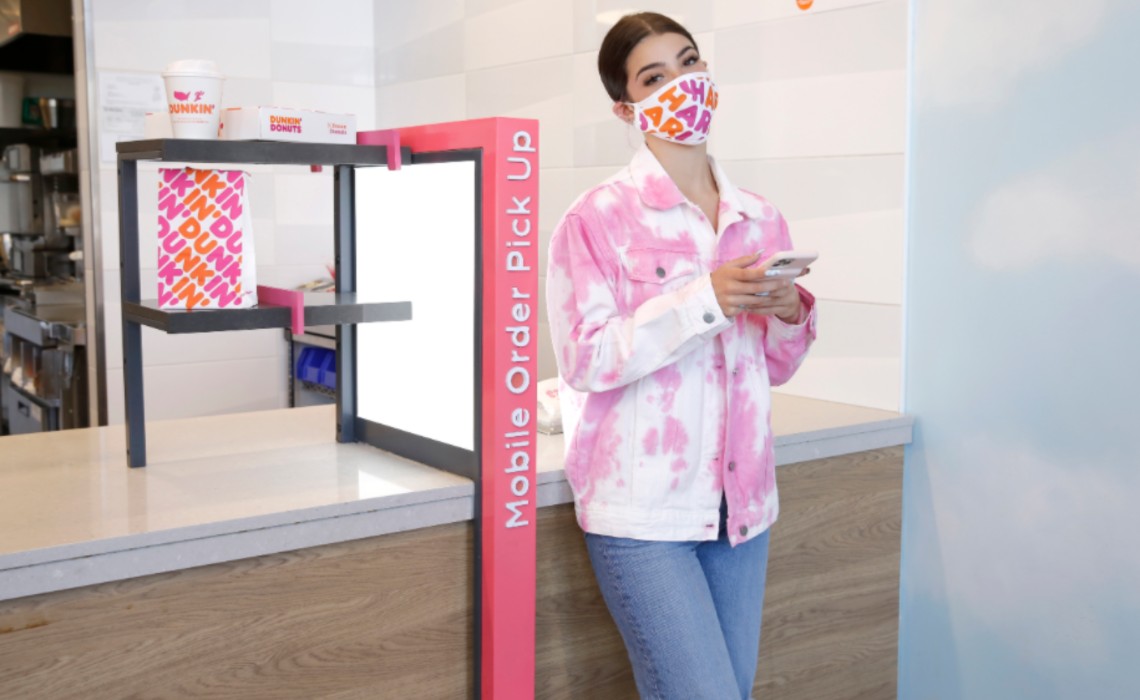This blog is a continuation of a previous blog “Corporate Tik Tok”. After my research on how corporate companies are creating personas for themselves and redefining their company perception within social media platforms, I wanted to hone in on another side of this discourse. I personally feel that influencers are one of the largest groups of people that currently control the market in terms of what brands are popular. With their relatable demeanor and massive connections on social media platforms influencer brand marketing has, and continues to become one of the most lucrative marketing options for companies wishing to become virally well known to younger consumers. Because most young people are involved in and consume social media content daily, older, more traditional forms of marketing are no longer reaching this part of the consumer market. Much like my previous post, large companies have adapted their practices in the face of digitalization. Aside from “personifying” and “humanizing” themselves, influencers are critical to their success on these platforms.
In this post, I will highlight two examples of influencers (big and small) that have become synonymous with the brands they promote and the economic and social impact this relationship brings. These are Charli D’Amelio and Milad Mirghahari.
Charli D’Amelio & Dunkin Donuts 🍩
Charli D’Amelio is the most followed person on the social media platform Tik Tok. Her content is mainly focused on 30-second videos of her dancing to popular songs in mundane locations like her kitchen, bedroom, and living room. Aside from her lucrative earnings from this platform, she has been well known for being a big fan of the fast-food chain Dunkin Donuts. Other videos of hers often included a Dunkin drink in hand or in the background. After she reached peak success and virality on the platform, Dunkin Donuts contacted her and decided to make a sponsor deal with her, a process and news which she shared and continues to share on all her social media accounts. Being a teenage girl herself means that much of her fanbase are young/teenage girls that idolize her and purchase any clothing/drink/appliance she shows on her socials.
With this in mind, it is clear to see how making a PR deal with Charli would benefit Dunkin Donuts. And it definitely was successful. Dunkin partnered with her to make a “Charli-special” (a cold brew coffee with milk and caramel drizzle). A challenge was made out of it where followers could purchase a drink and take a picture/video and stand a chance to win an online hangout session with Charli herself. The marketing was done strategically, with the announcement date of the 5 winners being on national dance day. In turn, they coupled what she’s known for on her main platform Tik Tok with their product placement and advertisement. Within the first 5 days of the drink being available, it was reported that the chain sold thousands of drinks, and “Dunkin’ saw a 20% sales boost for all cold brews that day as well as a 45% surge the following day” (Pesqueda 2020).


Not only did this partnership positively influence sales of coffee; it also helped to boost Dunkin Donuts’ digital presence. Within the first day of the drink’s launch, their Dunkin app reached a new milestone with a 57% increase in app downloads (ibid). While this wasn’t a long-term viral marketing concept, she was extensively photographed wearing Dunkin apparel and continues to passively promote the company in her videos. Essentially she has become the young face of the company and this situation indicates the impact that influencer collaborations can have on a company’s success.
Milad Mirghahari & Subway 🥪
Milad Mirghahari is a now-famous Tik Toker who has amounted to over 1.1 billion views with his Subway sandwich reviews and creations. He began making sandwich reviews to support his parents who own a Subway store in New Jersey and get people in his store to help with the dire pandemic economy. He makes POV (point of view) videos with a head camera, of sandwiches suggested by followers’ comments from his Tik Tok page and voices over them with personal stories or jokes about said followers. Food-making videos are known to go viral and the fact that he shows everything that goes into running the store and making its food has given him millions of loyal followers. These followers not only share and consume his content; many of them have driven for hours just to meet him and buy a sandwich, or ordered online and asked for their order to be recorded to be a part of the page in the most active way possible. All of these aspects resulted in massive economic growth for Milad’s parents’ store, and have helped to economically support them throughout the pandemic and after when the store fully opened again.
The success for Milad mirrors Charli’s in terms of influencer power and following but in antagonistic ways because Milad used the Subway name to his benefit while I would argue that Charli’s influence was used to Dunkin Donuts’ benefit. Milad is an interesting influencer to look at because according to his own calculations he has given Subway (the company) over $440,000,000 in free advertisements from his videos on Tik Tok and Youtube. While the company has not been involved in the content of Milad’s page, they have economically benefitted from his success, with boosted sales nationally and worldwide especially for the sandwiches he promotes the most. In the past, I have seen posts go viral of employees of establishments like Starbucks getting fired for recording dances or skits during their breaks while wearing their uniforms. Now, companies seem to welcome free marketing, as long as it shows a positive image of the company.
Are employees and influencers taking back the power of brands?
Most recently on Tik Tok, some influencers who happen to be “hooters girls” in the US made videos speaking out against their company for making their already micro shorts into what can be considered bikini bottoms, without coverage in the back. One of these videos went so viral that the CEO of Hooters contacted her personally and canceled the change in uniform nationally. So, is this an indication that the big companies are at the mercy of the power of these digital platforms? Does this indicate a change in how companies function? Or are all the influencers I mentioned the ones being controlled?



What’s interesting about social media is that it seems to make it possible for all parties involved to have control. In the case of the Hooter’s employee, it seems that she (and the public) had the upper hand, seeing as the company was quick to correct themselves because of social media scrutiny. But big companies like these know exactly how to use social media for their own benefit too, and the case of Charli and Dunkin proves just that. Even though it may seem that Charli has the upper hand (and she does too to some extent), ultimately it’s the company that has the most control and has the most to gain by using Charlie as bait.
This is a interesting topic because i have found video’s of Milad on YouTube . When i watched them i wasn’t realy thinking about what you have written here. It is a intresting thing to think about but i would say that the companies have all the influence. They could have just fired the girls from hooters and after some time the storm would have been over. The companies have the money to do and stop people however they want and the one thing they want is free advertising and money.